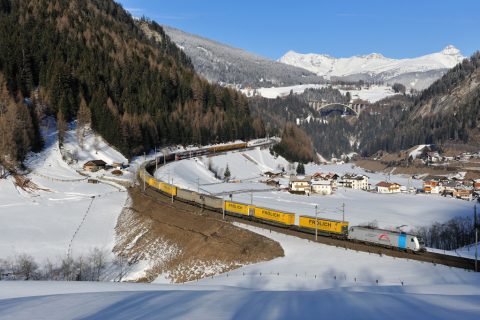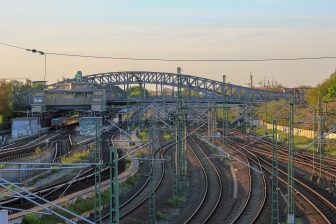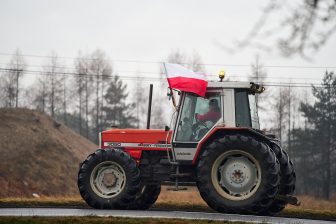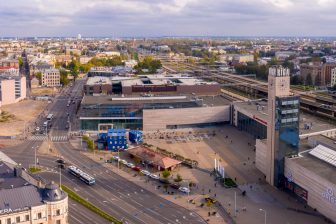
Rail freight 2017 & ahead – by ERFA’s Julia Lamb
To say it’s been a challenging year for the rail freight sector, not least in Europe, is an understatement. While the immediate effects of the Rastatt landslip in August were nothing short of an operational nightmare, there’s no doubting that the industry has had a wake-up call. In this special column for RailFreight, Julia Lamb, Secretary General of the European Rail Freight Association (ERFA) looks back at 2017 and shares some of her hopes for the coming year.
We enter 2018 with fresh hope that the new year will see strong, collaborative action to develop rail freight’s competitiveness, bringing with it a new dynamic to develop rail’s share of the transport market and place it at the forefront of Europe’s sustainable transport future.
“ERFA represents private and independent rail freight companies from across Europe, who want to invest in rail, set up new routes and new types of services in and across any of the EU countries, attracting more and new customers to choose rail as a transport mode. Regrettably the climate remains difficult to do so in many or even most European countries and while change has long been a long time coming, it has often been let down by a sector too slow to take advantage of the many opportunities ahead. For 2018 we are hopeful of a new dynamic on the horizon.
‘Intense pressure’
“The Rastatt disaster has brought new commitments from rail’s main service provider, the infrastructure managers, who are under intense pressure from rail’s customers, to step up support for competitive international rail freight services. These include making progress towards simplified language requirements for international rail operations, the centralisation of traffic management along the main international rail routes and progress towards the development of viable alternative routes with equal access parameters. These are crucial measures to either improve reliability and/or reduce rail’s costs, and are central to customers choosing rail over other competing modes. It is clear that the current situation whereby rail companies have to adapt to different operational rules, signalling systems, language requirements, technical requirements for their equipment each time they cross a national border or operate on an alternative route can never deliver a competitive offer. International-focused rail operations and pragmatic solutions must be the future for rail.
“With the EU Competition authorities’ intensified interest in cracking down on anti-competitive behaviour in rail, 2018 should also see progress towards achieving a more attractive environment for rail freight companies to invest in the sector and set up new services.
Transparency
“The recent decision to investigate the Romanian incumbent freight operator, CFR Marfa, for unlawful use of state aids, comes on the back of a record fine for Lithuanian Railways for dismantling public rail infrastructure in order to penalise a rail customer and the earlier ECJ ruling against Germany for failure to ensure full transparency in DB’s accounts. These decisions should all have a far-reaching impact on their respective markets and beyond. Why is this so important for rail’s future? The misuse of public money and abuse of dominant position by some of the biggest market players hinders much-needed restructuring to support rail’s sustainable growth. The situation means that rail does not have a competitive market and is therefore not in a strong position to compete with road on price, quality or innovation. In most EU Member States one dominant market player, normally the state-owned company, trounces the competition, with the nearest, biggest competitor trailing far behind. The monopoly situation fosters pricing distortion; limited customer orientation and unsustainable business models. None of these help rail to shift more goods away from road.
“2017 has also seen much-needed recognition from leading national governments of the significant contribution rail freight brings to their economies and its positive impact on reducing harmful Co2 emissions, relieving congestion on the roads and reducing air pollution. This has translated into welcome support, both in terms of new financing and in terms of political will to address many of the national obstacles that hinder rail’s development. The German Master Plan, in particular its commitment to halve track access charges, demonstrates clear support from the German Government for promoting rail’s competitiveness. So does the very recent announcement by the UK to finance the ETCS retrofitting of the entire UK rail freight fleet of locomotives, supported by national government funding.
Level playing field
“Also back on the table are vital initiatives to minimise the disruption of engineering works on the quality of rail services; strengthen the role of the rail facilities’ market in boosting rail’s competitiveness; and create an EU standard pricing scheme for road that puts it on a more level playing field with rail charges. It is essential that these positive developments are built upon, promoted across Europe and ultimately secure a central role for eco-friendly rail in Europe.




